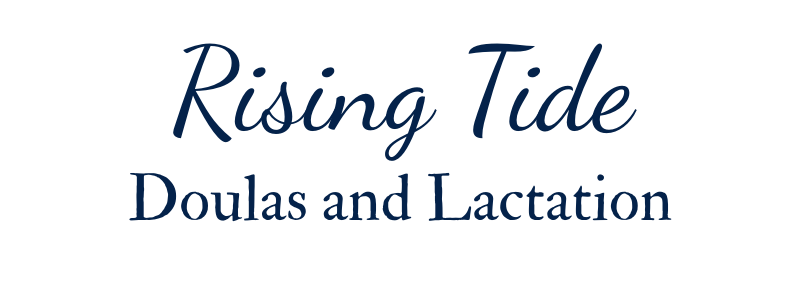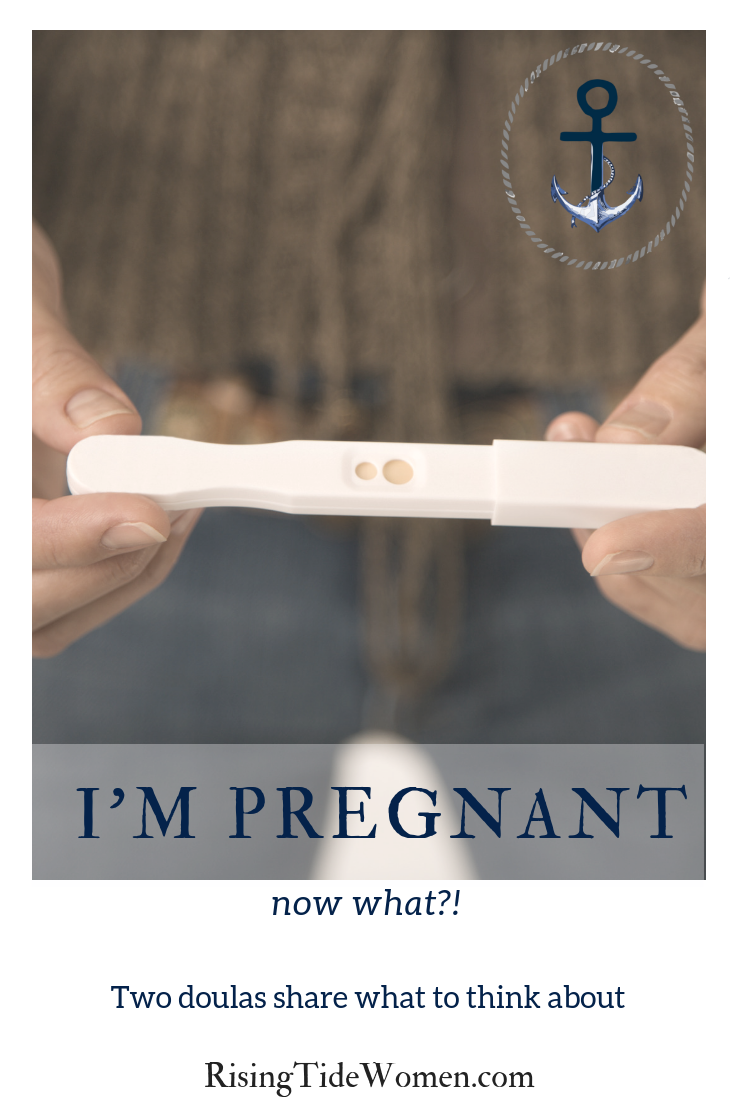There really is no jam like a Rising Tide Women Wednesday Doula Jam. Typically, Lindsay and Liz spend each week rotating through subjects that pertain to pregnancy, birth, breastfeeding, and the postpartum healing period. When we got to the “birth” week, and wanted to cover “coping in labor”, we knew that it would be best to spend two Jams on the topic. The first week we chatted about pain medication options, and the second week, non-medicated options. Since both of these options require a childbirth prep class to fully understand the intricacies, we thoughtfully reviewed the options, giving our viewers a taste. You should always fully discuss ALL of your options with your care providers and we do highly recommend private birth preparation with certified instructors (heads up, this is what we DO) so that you understand all of the risks and benefits before you say “yes” to anything.
One of the initial thoughts that may race through your head when you find out that you are expecting is “how am I going to deal with the pain? My friend said that labor was just awwwwful!” We hear you, we also want you to know that we believe in you and your abilities. You WILL get through labor, one way or another. You do not need to commit to a plan at any point, nothing is written in stone. Keep your options and your mind open.
Some pregnant people know off the bat that they want meds. For whatever personal reason, it is their choice and its not our job to sway a person based on our beliefs. We at Rising Tide Women do ask that you do lots of research before hand and understand what saying “yes” to medications really means. The way Lindsay and Liz see it, “yes” is a very empowering word in birth, as long as you consent as a fully informed person. Epidurals are usually NOT your only medication option. Depending on the place you birth, you may be offered nitrous oxide (“laughing gas”), narcotics, or an epidural or spinal. You may want to try one of those before an epidural. Please do keep in mind, the facility you are laboring at may suggest (or even require) you to stay in bed if you elect one of these medications. Limiting your mobility during birth can change the course of things. You’ll want to understand what restrictions the hospital will impose. It could change your decision. Please view the Pain Meds in Labor video below.
Another way to approach birth is to do it without medications. Just as valiant as having a medicated birth, because lets face it, birth givers are total badasses, and it takes all the courage in the world to do this work. However, if it is your philosophy to labor and have your baby without any pharmaceuticals, we think you are awesome too! This option takes a solid education in birth preparedness with certified instructors (see: Rising Tide Women Birth Classes) in order to learn about coping, expectations, and techniques to get you and your birth support team through the process. Research does conclude that where a person gives birth and who is by their side (care providers, doula, support people) impacts pain relief. Very briefly, ways to reduce the perception of pain include: surrounding yourself with people you love and trust, playing music, having comforting smells around you, movement (walking, slow dancing, lunging, swaying, rocking, stairs), position changes (squatting, leaning, hands and knees, side-lying), water emersion (tub or shower), slow and deep breathing (gives the brain something to concentrate on), hypnosis/guided meditation, touch (light touch/stroking, massage, acupressure, counterpressure), applying heat/cold to body, and verbal reassurance. Our Non-medication Ways to Cope in Labor video below discusses this further.
Because we love you, and always want you to have immediate access to our favorite resources, here are some links to click about this subject!
Please share this with your loved ones if they are expecting! We appreciate all of your support, kindness, and Doula Jam love!
Lindsay and Liz


















